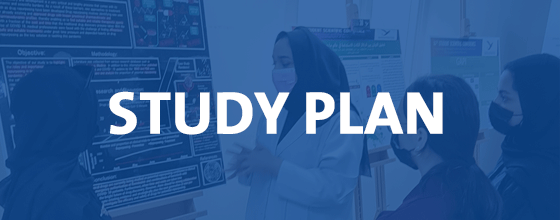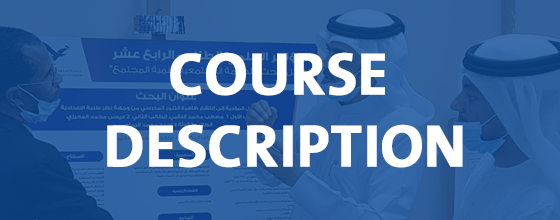Bachelor of Science in Management
College of Business Administration
College of Business Administration (CBA) is one of the most credible business colleges in the region that is committed to the development and enhancement of knowledge and business skills of its students to enable them to understand the modern business world, to achieve the highest levels of success in their professional careers, and to play effective leadership roles regionally as well as globally.
CBA is committed to providing high-quality business education. The remarkable growth in economic and business activity in the world in general and Arabian Gulf region in particular, over the past decade, has greatly stimulated the demand for skilled and competent business graduates. Our competitive degree program is, therefore, developed to offer both local and global perspectives as well encourage our students to think out of the box and innovatively so as to not only be equipped with the knowledge, skills and attitudes they need to effectively address the challenges and opportunities of today’s internationalized and fast evolving business environment but also emerge as business leaders of tomorrow.
CBA strives to provide the best and most modern methods of instructions to students. The CBA diligent and highly qualified faculty members ensure that the Bachelor of Science in Management curriculum is consistently updated in order to reflect and keep up with the ever evolving trends and techniques of the contemporary business world.
Mission
The college adheres to the fulfillment of USTF’s overall mission, which seeks to meet the educational needs of local, regional and international students. As such the college philosophy is grounded in finding practical and scientific solutions to contemporary organizational and business problems through the offered program by the college. Stemming from this underlying philosophy, the college’s strategic focus is to enhance the intellectual, professional and behavioral development of its students to meet the managerial challenges of the 21st century.
Academic Programs
The college offers Bachelor of Science in Management, providing students with theoretical background and practical skill that form an excellent foundation for satisfying career requirements or for subsequent graduate degree. For the undergraduate Bachelor of Science in Management program, USTF has received initial accreditation by the Commission for Academic Accreditation (CAA) of UAE Ministry of Education (MoE) in July 2019.
CBA Undergraduate Program is:
- Bachelor of Science in Management
Facilities
The college’s current physical facilities, which include offices, labs and teaching rooms, sports grounds, and health club are fully equipped to adequately meet its needs and are regularly upgraded. The library is regularly updated with the latest books in multiple fields and disciplines for the benefit of students and faculty members. IT facilities include:
- Wireless internet connection, available in the university campus.
- Internet labs.
- Multimedia facilities are provided and business programs are installed in all labs.
- College computers connected through local and wide area networks.
Department of Management
The Department of Management offers a comprehensive and dynamic program leading to the Bachelor of Science in Management, which integrates multidisciplinary approaches to teaching and learning, utilizes the latest business and economic theories along with providing practical exposure to its students through real-life case studies and analysis of actual business data and presentations. The department focuses on building and enhancing students’ essential skills, like, critical thinking, effective communication skills, business acumen and understanding of strategic models that are used in modern business world, in order to facilitate their entry into the global business arena as exceptional and professional managers and entrepreneurs.
Bachelor of Science in Management
Mission
The mission of the Management Department is derived mainly from the grand vision and philosophy of the University and the College of Business Administration. The department aims at providing students with excellent education and professional practice in various areas of management via a rigorous academic program that promotes critical thinking, interpersonal skills, technical competence and above all ethical and moral principles and practices.
Goals
- To equip students with in-depth knowledge of contemporary management theories, concepts, principles, and practices relevant to the business and management careers in the twenty-first century.
- To develop students’ creative and critical thinking and problem-solving skills necessary for the identification, analysis, and resolution of a wide range of business and management problems.
- To develop students’ ability to apply information technologies that is necessary to facilitate business and management decision-making processes.
- To equip students with appropriate communication, teamwork, motivation, leadership, and research skills suitable in the business and management environments.
- To enable students to identify and utilize decision-making techniques and skills that meet professional, ethical, and socially- responsible standards.
Learning Outcomes
1. Knowledge:
Upon successful completion of the Bachelor of Science (BSc) in Management program, graduates will be able to:
- Deal effectively and efficiently with managerial responsibilities, tasks and challenges in changing and complex business environments.
- Display problem solving and decision making skills in a variety of contexts
- Articulate issues and disseminate solutions to a variety of stakeholders.
- Demonstrate broad managerial competencies adapted to a globalized world.
- Conduct research and pursue post-graduate studies.
2. Skills:
- Understand key theories in leadership and management
- Explain the organizational objectives of specialization, coordination, adaptation and alignment to benefit the community and the business milieu
- Identify the differences between the conduct of quantitative and qualitative research
- Understand the requirements for managerial ethical, moral, and the principle of what is measurable is manageable.
- Understand the global multidimensional managerial challenges as they pertain to the various functions of the global corporation.
- Develop awareness of the importance of strategic change and development
- Explain the role of quality standards in an applied business strategy.
- Apply creative thinking to the solution of complex organizational challenges.
- Acquire the requisite knowledge and skills to conduct research and to pursue postgraduate studies.
3. Competence (Autonomy and Responsibility)
- Conduct research projects independently or in a group setting.
- Conduct graduation projects according to the College of Business Administration guidelines that are stipulated by the College of Business Administration. Orally present and defend graduation projects.
4. Self-development
- Engage in a life-long learning cycle and respond in a positive and responsible manner to constructive criticism.
- Enroll in an approved training course at the conclusion of the senior year.
5. Role in Context
- Demonstrate professionalism and respect for fellow students and faculty members.
- Maintain high ethical standards in the conduct of all activities in the CBA
|
Knowledge |
|
|
K1 |
Deal effectively and efficiently with managerial responsibilities, tasks and challenges in changing and complex business environments. |
|
K 2 |
Display problem solving and decision making skills in a variety of contexts |
|
K 3 |
Identify the differences between the conduct of quantitative and qualitative research |
|
K4 |
Demonstrate broad managerial competencies adapted to a globalized world. |
|
K5 |
Conduct research and pursue post-graduate studies. |
|
Skills |
|
|
S1 |
Understand key theories in leadership and management |
|
S2 |
Explain the organizational objectives of specialization, coordination, adaptation and alignment to benefit the community and the business milieu |
|
S3 |
Identify the differences between the conduct of quantitative and qualitative research |
|
S4 |
Understand the requirements for managerial ethical, moral, and the principle of what is measurable is manageable. |
|
S5 |
Understand the global multidimensional managerial challenges as they pertain to the various functions of the global corporation. |
|
S6 |
Develop awareness of the importance of strategic change and development |
|
S7 |
Explain the role of quality standards in an applied business strategy. |
|
S8 |
Apply creative thinking to the solution of complex organizational challenges. |
|
S9 |
Acquire the requisite knowledge and skills to conduct research and to pursue postgraduate studies. |
|
Competencies Autonomy and Responsibility |
|
|
CA1 |
Conduct research projects independently or in a group setting. |
|
CA2 |
Conduct graduation projects according to the College of Business Administration guidelines. |
|
CA3 |
Orally present and defend graduation projects |
|
Role in Context |
|
|
CR1 |
Demonstrate professionalism and respect for fellow students and faculty members. |
|
CR2 |
Maintain high ethical standards in the conduct of all activities in CBA |
|
Self-development |
|
|
CS1 |
Engage in a life-long learning cycle and respond in a positive and responsible manner to constructive criticism. |
|
CS2 |
Enroll in an approved training course at the conclusion of the senior year. |
Admission Requirements
- Pass the UAE General Secondary High School Exam, or students must submit equivalency of non-Emirati certificate issued by MOE.
- achievement a minimum grade of 80% in English Language in their General Secondary School Certificate, if the grade is less than 80%, the student may be conditionally admitted, and study English "Foundation Course" offered by USTF and pass it with a minimum score of 80%.
- Students who have studied curricula not affiliated with the Ministry of Education are not required to provide proof of English language proficiency if the curriculum is taught in English.
- Students who have studied curricula not affiliated with the Ministry of Education and in a language of instruction other than English can demonstrate proficiency by passing internationally standardized tests. The student must achieve a minimum TOEFL IPT score of (500) or IBT TOEFL (61 or CBT TOEFL - 173); or a minimum score of (5.0) in Academic IELTS; or Equivalent to that in other English proficiency tests approved by the MoE, OR the student may be accepted conditionally accepted and study English "Foundation Course" offered by USTF and pass it with a minimum score of 80%.
Career Opportunities
Management is the art of getting things done by others. Hence, the need for future managers never stops, particularly for those who are equipped with the latest managerial knowledge skills and the ability to think analytically.
The Bachelor of Science in Management program has been carefully crafted to meet market demands qualitatively. The program is intended to produce graduates who will be efficient and effective managers able to achieve organizational objectives. USTF management graduates have been well-received in the job markets of the UAE and other Arabian Gulf countries for their outstanding teamwork, and creative and management leadership skills.
Graduation Requirements
Students will be awarded the Bachelor of Science in Management degree upon fulfillment of the following requirements:
- Completing successfully the required Credit hours (126 Credit Hours)
- with a minimum CGPA of 2 out of 4


